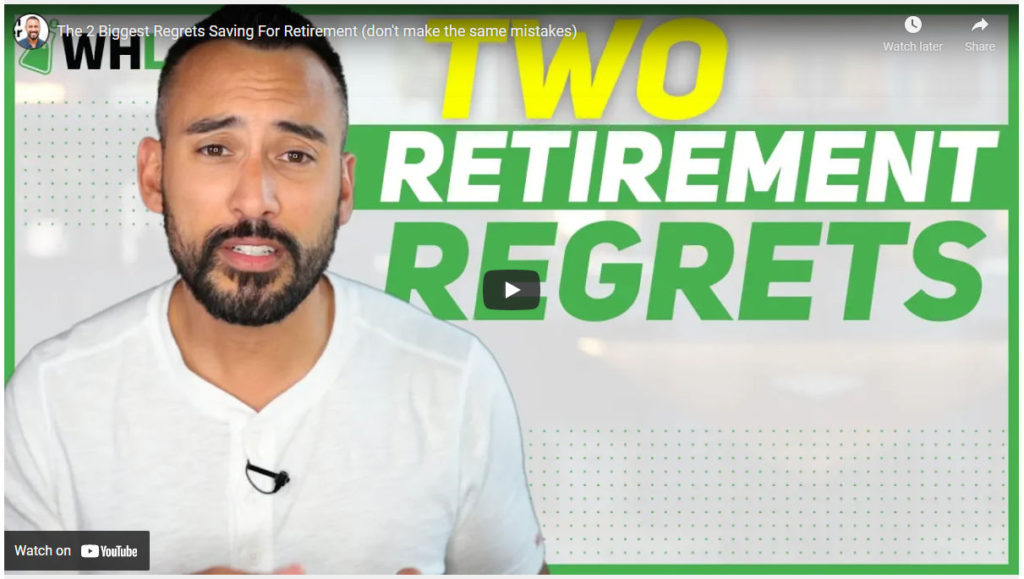Everyone dreams of a comfortable retirement. Often we can’t wait to reach that moment and finally transform our lives into one long vacation. Unfortunately, saving money for that day can be a constant struggle. No matter how much you earn, there are always alternatives to saving for retirement. The most common financial worry among retirees is outliving their savings. To avoid that possibility, it’s necessary to work on a financial strategy for retirement to ease your mind. Finding ways to earn more money and make the best of what you already have will boost your retirement savings and help you sleep better at night.
Consider Downsizing or Hosting
If you have a big family home and you’re getting closer to retirement, you’re probably an empty nester. Spacious homes in good locations are always in demand, so downsizing can be a great way to boost your retirement fund. Therefore, selling your home and moving to a smaller house or apartment with more affordable living costs might be a great idea.
Another alternative would be to become an Airbnb or Verbo host and rent out your spare room or rooms to generate extra income. Before selling or hosting, it might pay to declutter your home. All the unnecessary items you no longer use can be sold in a garage sale or online, and you can put that money into savings. Every dollar you can save will help. Moving can be costly, tiresome, and stressful, especially as you get older. That’s why it’s essential to reduce unnecessary items as much as possible and have a reliable service with a lot of experience in tending to the needs of the elderly during relocation.
Boost Your Retirement Income with a Part-Time Job
One of the safest ways to boost your retirement savings is to make more side money either while you are still working or even after you retire. Reducing the amount you dip into savings at the beginning can greatly extend the length of time it will last. Many retirees take on a side job to either supplement their retirement income or simply because they enjoy it. When it comes to eliminating the “longevity risks”, every extra dollar counts, no matter how small.
These days, working remotely or part-time is easy with access to the internet. You have to find something you’re good at and make the best out of it. Online tutoring, lecturing, writing, etc., there are plenty of opportunities to make it work. If using technology isn’t the right choice for you, you can always try doing things like arts and crafts, DIY handyman projects, or Yardwork.
Keep Working for a Couple of More Years
You’ve been patiently waiting a long time for the retirement day to come. Still, to eliminate the fear of outliving your savings, you could continue to work a few more years after you’ve reached the minimum retirement age. A lot of things are changing rapidly. The easy access to health care and advancement of medicine makes the average lifespan much longer than it used to be. Many people opt for working until the age of 66 or even 70, even with available early retirement benefits at 62. A few more years of steady income will significantly boost your retirement savings and make your retiree life much more pleasant.
Retirement Saving Mistake 1: Not Maxing Out Your 401(k)
A 401(k) plan is a company-created retirement savings account, where employees can contribute and where the employers can make matching contributions. Usually, the employees can choose between traditional 401(k) and Roth 401(k). Opting for a traditional 401(k) will reduce your income tax for that year, but the withdrawals are taxable. As for Roth, contributions are made with post-tax income, with tax-free withdrawals. Each of the options has its benefits as long as you max out the contribution each year. The maximum contributing amount is set every year according to inflation rates.
Still, it’s essential to know that your 401(k) plan investments are not lost with a job change. In case of a job transfer, rolling over the account is possible with the help of an IRA.
Retirement Saving Mistake 2: Not Considering an Investment Retirement Account (IRA)
Opening an IRA can simplify your financial life with tax-deferred growth and straightforward pricing. You can choose where to invest your savings, from various stocks and bonds to well-known mutual funds. An IRA is a great way to boost your retirement savings by putting tax refund money into your account. You could easily oversee such money. But investing it into a traditional IRA will only make it grow in the long run.
After turning 50, there are some additional benefits in maxing your contributions. Annually, you can add $1,000 to a traditional IRA on top of the standard rates and $6,500 to your 401(k) in addition to the max of $19,500.
Retirement Saving Mistake 3: Not Paying Off Your Debts Before Retirement
Making only the minimum payments on loans and credit cards will cost you a lot of interest. Paying a little bit extra each month will soon balance the credit card account. After you’ve sorted out the bank finances, focus on your mortgage. In most cases, unless you have a large retirement fund, you should pay off your mortgage and reduce your expenses as much as possible before you retire.
Retirement Saving Mistake 4: Not Considering an Annuity
There are a lot of different types of annuities. Some are good, and some are not so good. But if you have a reliable advisor, a good annuity can provide you with a guaranteed income for life. Depending on your age and circumstance, annuities can be allowed to grow for a few years before you start withdrawing, or “immediate” annuities can be arranged to start providing income immediately. There are a variety of annuity calculators available. One calculator recently provided this result: Putting $100,000 into an annuity and starting immediate withdrawal could get you $507 in guaranteed monthly income. But the withdrawal amount depends on your current age and several other considerations. Newretirement.com has a good annuity calculator.
Conclusion
No matter how challenging saving enough money for a pension is, a good plan will help you achieve your desired goal. As long as you start saving as soon as possible and keep track of your investments, you can be sure you will enjoy a long and comfortable retirement. Needless to say that if you want to boost your retirement savings, you need to kickstart serious changes in your spending habits.
You might also like:
- Preparing for a worry-free retirement
- Why We Downsized Before Retirement
- 5 Critical Things to Do Before You Retire
- Planning Financially for Your Retirement
- Essential Investment Considerations for Seniors
- 4 Types of Trusts That Can Protect Your Assets
- Navigating Estate Planning and Probate Law
- Things You Should Know When Investing During Your Retirement Years
- Empty Nest Finances— Downsizing Tips to Increase Your Retirement Budget
- Retiring to the Mountains: Enjoying Your Retirement
- Take Control of Your Future with Self-Directed Retirement Plans
- More Retirement Planning Articles




